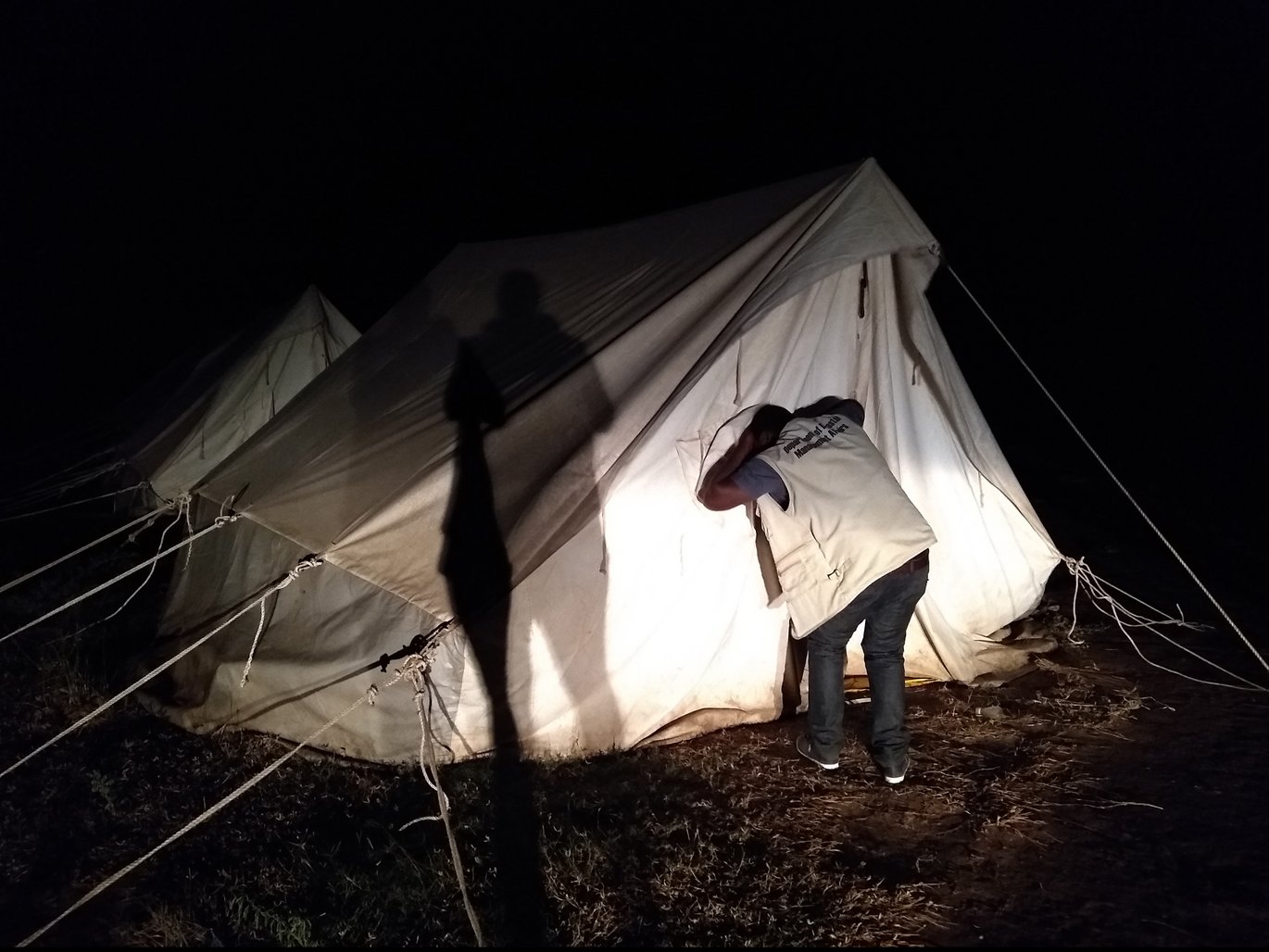"In humanitarian work we prioritise the lives of those who are suffering on the ground, our own needs come at the end".
Quote and photo from the field. By ESR Tanja Hendriks.

All ESR's are on fieldwork in Africa in 2019. As part of the dissemination they will be sending a photo and a quote from the field while they are away.
----------------------------------------------------------------------
This photo and quote from the field comes from ESR Tanja Hendriks who is doing her fieldwork in Malawi on disaster relief interventions. Read more about her research here.
“In humanitarian work we prioritise the lives of those who are suffering on the ground, our own needs come at the end.” Quote by the Chikwawa district officer for Disaster Management Affairs.
Malawi was one of the countries hard hit by Cyclone Idai in March this year. In Chikwawa district, one of the most disaster prone areas in the country, the rains caused severe flooding and displaced more than 78.000 people. They found refuge in internal displacement camps where they receive assistance from a variety of actors. Malawi being an aid-dependent country, the Malawi government Department of Disaster Management Affairs (DODMA) commands very limited resources and therefore collaborates intensively with international humanitarian organisations and (I)NGO’s to respond to the disaster.
In the picture, the Chikwawa DODMA officer can be seen during a nightly camp inspection which was organized together with the Malawi Red Cross Society. Having worked non-stop since the onset of the disaster early March, often without receiving allowances, the nightly camp inspections in May took a lot of energy as they came in addition to the daytime work. However, government employees and NGO-workers continued tirelessly and frequently referred to humanitarian values in an effort to motivate each other.
In my research on governance and human security I am shadowing (quite literally, as you can see in the picture) the Chikwawa district officer for the Department of Disaster Management Affairs, focusing on the everyday practices of governing in disaster relief interventions and the ways in which these practices instantiate the postcolonial, aid-dependent Malawi state in a time of crisis.